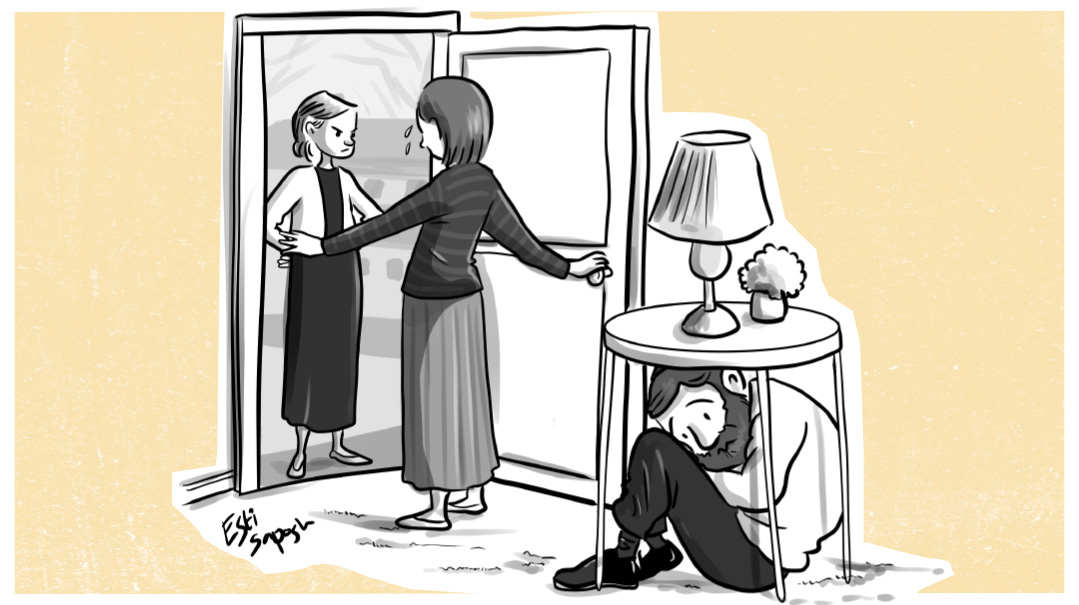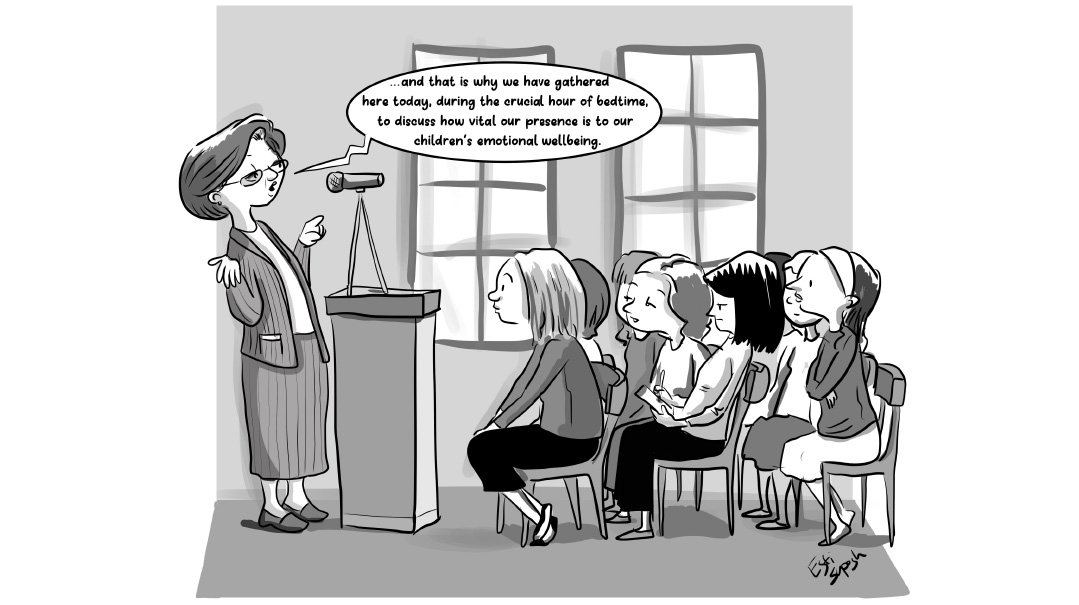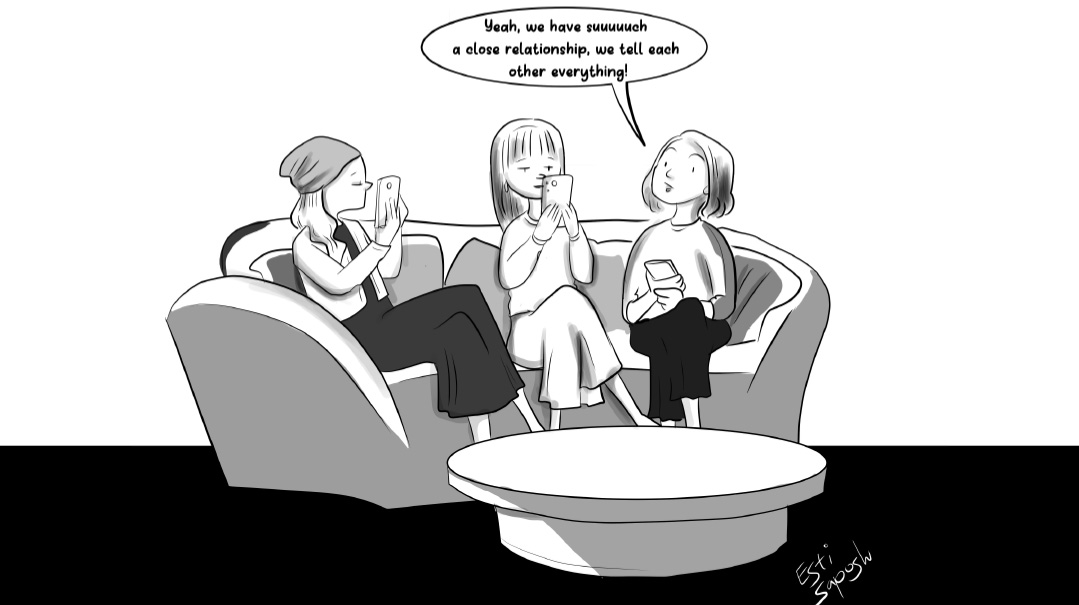“My Daughter Now Only Eats ‘Clean Cooking’ — and Insults Mine”
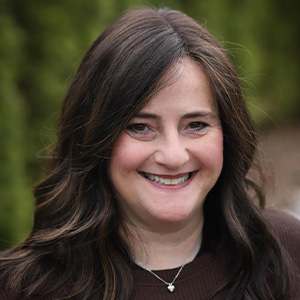
How do I respect her deeply held beliefs while maintaining my dignity and the dignity of my food?
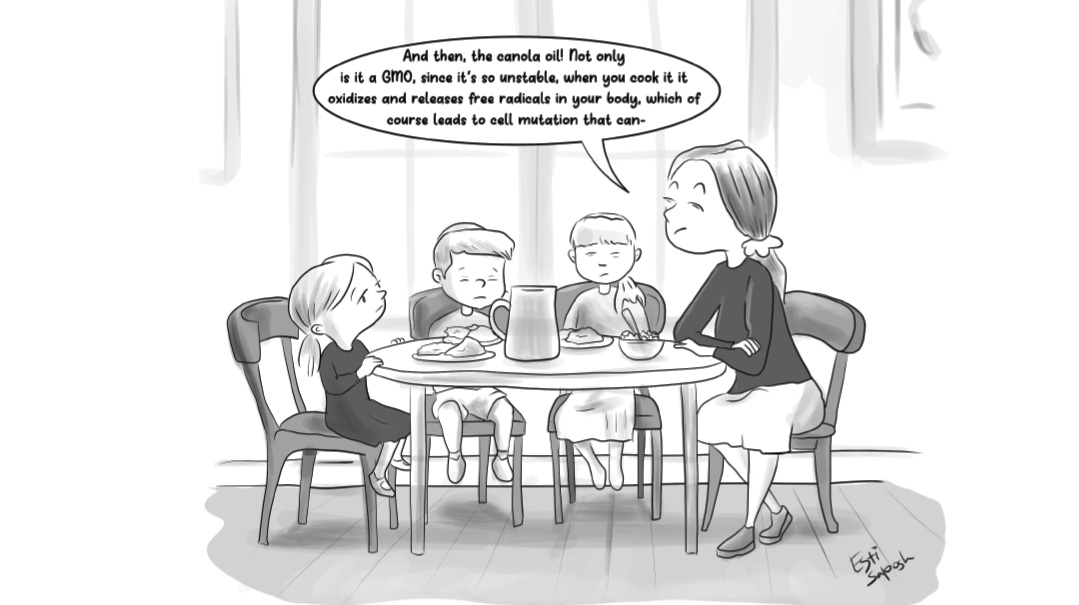
Q:
On the scale of terrible life events, this probably rates less than a 1, but I’d appreciate some guidance nonetheless, because, honestly, my last nerve is shot. My 17-year-old daughter has recently embraced “clean eating.” This not being my first rodeo, I went along with it. In fact, if I do say so myself, I’ve been quite the trouper, giving her free rein in the kitchen and even considering remortgaging the house to pay for her organic products.
But I’m struggling with hearing my cooking defamed. Telling my other children that the food I’m serving is poison and filled with toxins is crossing a line. Just so you understand the magnitude of the issue — we went from needing a full 9x13 of potato kugel on Erev Shabbos to a mini loaf pan for my husband, who has remained steadfast and loyal to me (and my kugel).
How do I respect her deeply held beliefs while maintaining my dignity and the dignity of my food?
A:
Years ago I had a wise supervisor who used to refer to difficult situations and failures as RLE’s: Rich Learning Experiences. I believe your dilemma is one such example of an RLE. Hashem has provided you a rich opportunity to teach your daughter and the rest of your children about the proper way to disagree.
You can teach them about respectful dialogue, about discussing ideas without being disparaging, about the relative value of objects and ideas, and that few things in life are black-and-white. Your kitchen has become a lab in which to study the art of mutual respect even as we hold certain ideas dear. This is a chance to talk about gratitude, to explain that we can appreciate what we have and what people do for us even when things are not exactly as we wish.
It sounds like it’s time for a conversation about mutual respect. It might surprise her to hear that you don’t necessarily think “clean eating” is the be-all and end-all, but that you’re supporting her because it’s important to her. Let her know that you would like that respect in return, as your house is one that is run on respect.
And if all that fails, hand her the apron and tell her she is welcome to cook all meals for the family from here on in, while you quietly sip your Slurpee on the deck.
Q:
When I got married a few months ago, my sisters all told me that Oldest Sister expects frequent phone calls. I was a good girl and called as often as I could, until I realized that I really didn’t enjoy these calls, which were basically Oldest Sister monologues about everything under the sun, from unsolicited household and marriage advice to running updates on everything going on in her life, along with her strong opinions about what all of the people she knew were doing wrong. I barely got a word in edgewise.
So I started calling less often. Now, I give her a call once every couple of weeks, when I know I have the patience and headspace to listen to her for an hour. I’ve now become one of the people she complains about to my mother and sisters, and she accuses me of being cold and cutting her out of my life. How can I explain that my idea of a wholesome sisterly relationship is not the same as hers? Or should I be going back to the frequent calls to keep the peace?
A:
Let us discuss this “peace” of which you speak. The Chofetz Chaim elaborates on the halachah that permits telling a white lie for the sake of peace, citing the pasuk “Midvar sheker tirchak — Distance yourself from sheker, falsehood.” He explains that machlokes is sheker. While one cannot tell an outright lie, if one evades the truth to avoid machlokes, he is actually operating in the true definition of emes.
I guess I’m wondering which part of complaining about others, speaking lashon hara about them, and just general negativity qualifies as bringing more peace to the world.
Old roles die hard and growing older does not guarantee growing up. I wonder if this dynamic is as old as your family. It sounds as though your sisters have choreographed a dance with Oldest Sister smack in the middle of the circle, deciding at any moment who gets let in the inner circle and who does not. I don’t know if this is a role she has played forever, but sometimes stepping out of the circle and into a new one (your marriage) allows you a whole new perspective. And what seemed like a graceful cha-cha-cha can suddenly feel like a lot of people in heels tiptoeing around each other — or worse, stepping on each other.
With the gift of your perspective comes the responsibility to make a conscious, healthy choice that is best for you and your new family. They (he) are your new priority. How are you when you get off the phone with Oldest Sister? Are you in the sort of positive frame of mind that you want to infuse your home with? Do you feel energized and motivated to see the good in everyone, including your new husband? Or quite the opposite?
I thought so.
We need to redefine peace. It’s not just an absence of conflict; it means a place of shleimus. The current dynamics do not support wholeness or health — not in you, and not in your family. No one likes a troublemaker — there’s a reason you’ve been a “good girl” for so long — but it takes great courage to initiate change and to rock the boat when the ship is cruising along a stream of negativity. The day you learn that it’s okay if not everyone is happy with you all the time is the day you become free to really do ratzon Hashem.
I am not advocating causing a seismic shift and great dramatic waves in the family system. I’m talking about quietly and consistently staying true to your values and gently living by the boundaries that you seem to intuitively possess — and then drawing on your inner strength when you get pushback. Oldest Sister may not like it. That’s okay.
No one else seems to know it’s okay. They’re all still living by the unwritten code of family law that says it’s not okay to displease Oldest Sister (or maybe anyone at all, for that matter, I don’t know, I didn’t see the codebook). But I am here to tell you that it is okay to gently put a stop to unhealthy behavior. It is okay to believe that you and your family are capable of holding each other to a higher standard. I don’t know enough about the full dynamic, but perhaps you can be an agent of change by asking your sisters to respond neutrally the next time your oldest sister complains about you. “I really don’t feel comfortable talking about Chani. If you’re upset with her, maybe talk to her directly.”
In this great discomfort lies equal and opposite potential for true peace. Wishing you the strength to pursue it and the serenity to know that doing the right thing trumps being a “good girl.”
Q:
I was recently talking to my mother about my younger brother, who’s starting shidduchim, and she was carrying on about the type of girl who would befit a bochur of his stature. My younger brother confides in me quite a bit and I think my mother would be pretty surprised if she knew where he was really holding. Is it my job to adjust her view?
A:
Your job is to encourage your brother to have a more open conversation with his mother about where he’s really holding. For everyone’s sake.
And don’t be surprised if your mother is not as naive as she pretends to be when she’s talking about her prized baby son.
Sara Eisemann, LMSW, ACSW, is a licensed therapist, Directed Dating coach, and certified Core Mentor.
Have a question or scenario where you want Sara’s insight and perspective? Now we’re talking! Send your questions to familyfirst@mishpacha.com. This column will appear monthly.
(Originally featured in Family First, Issue 900)
Oops! We could not locate your form.


